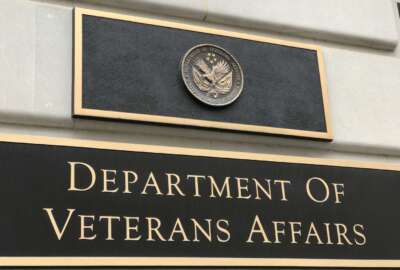House Republicans lead $3B VA supplement to fix year-end budget shortfall
VA officials told Congress about the $15 billion total budget shortfall in July. Lawmakers say it’s the largest funding gap in the department’s history.
House Republicans are leading a supplemental funding bill to address a multi-billion-dollar budget crunch at the Department of Veterans Affairs.
Leaders of the House Appropriations and House VA committees introduced a bill Friday that would give the VA $3 billion to ensure the department can keep paying benefits to veterans for the rest of the fiscal year.
The Veterans Benefits Continuity and Accountability Supplemental Appropriations Act would ensure the VA has enough funding to keep paying veterans’ compensation, pension and readjustment benefits for the rest of fiscal 2024.
The emergency funding bill, however, does not address a $12 billion shortfall the VA anticipates for fiscal 2025. The VA gets funding for its mandatory health and benefits programs a year before the current fiscal year to avoid any disruption from a government shutdown.
VA officials told Congress about the $15 billion total budget shortfall in July. Lawmakers say it’s the largest funding gap in the department’s history.
House Republicans are frustrated VA leaders notified them about the budget crunch a few months after submitting their FY 2025 budget request and appearing before both committees to explain their budget needs.
House Appropriations Committee Chairman Tom Cole (R-Okla.) called the VA’s $15 billion budget shortfall a “glaring failure,” that “reflects a grave departure from their budget submission provided mere months ago.”
“Our heroes deserve more than this incompetence. Through this bill, we ensure that promised benefits remain secure and enact needed oversight to guarantee full accountability and transparency,” Cole said in a statement.
House VA Committee Chairman Mike Bost (R-Ill.) said the VA budget “is serious business that has a real impact on veterans’ lives.”
“The Biden-Harris administration has embarrassed themselves with how poorly they have mismanaged and run VA’s budget into the ground, resulting in a $15 billion dollar shortfall,” Bost said.
House Appropriations Committee members Mike Garcia (R-Calif.) Judge Carter (R-Texas) and David Valadao (R-Calif.) are also leading the VA supplemental bill.
The supplemental spending bill would require the VA to give Congress regular updates on the status of funds needed to pay veterans’ benefits until the end of fiscal 2026.
The bill would also require the VA’s inspector general office to issue a report on the root causes of the VA’s budget shortfall.
VA officials say the department is delivering record levels of health care and benefits to veterans under the PACT Act, which expanded veterans’ eligibility for VA health care and benefits if they were exposed to toxic substances during their military service.
About 740,000 veterans have enrolled in VA health care since the PACT Act was signed. That’s about a 33% increase over the previous two-year period before the PACT Act was signed into law in August 2022.
Increased hiring
Bost says increased hiring and pharmaceutical costs, “above all,” are contributing to the VA’s budget predicament.
The VA hired more than 61,000 health care workers in fiscal 2023. The Veterans Health Administration has more than 400,000 total employees, its largest workforce so far.
The VA, in its FY 2025 budget request, planned to reduce its workforce headcount by 10,000 employees — with most of those jobs coming from VHA.
However, Bost said in July that VHA is now looking at a staffing increase of 22,000 full-time employees over the same period.
About 17,000 employees, he added, have already been hired, and VHA is looking to hire another 5,000 employees.
VA Press Secretary Terrence Hayes told reporters in July that the department is working closely with Congress and the Office of Management and Budget “to resolve these potential shortfalls in a way that prevents any adverse impacts on veterans — and allows us to continue to deliver care and benefits to veterans at record rates.”
Copyright © 2024 Federal News Network. All rights reserved. This website is not intended for users located within the European Economic Area.
Jory Heckman is a reporter at Federal News Network covering U.S. Postal Service, IRS, big data and technology issues.
Follow @jheckmanWFED






